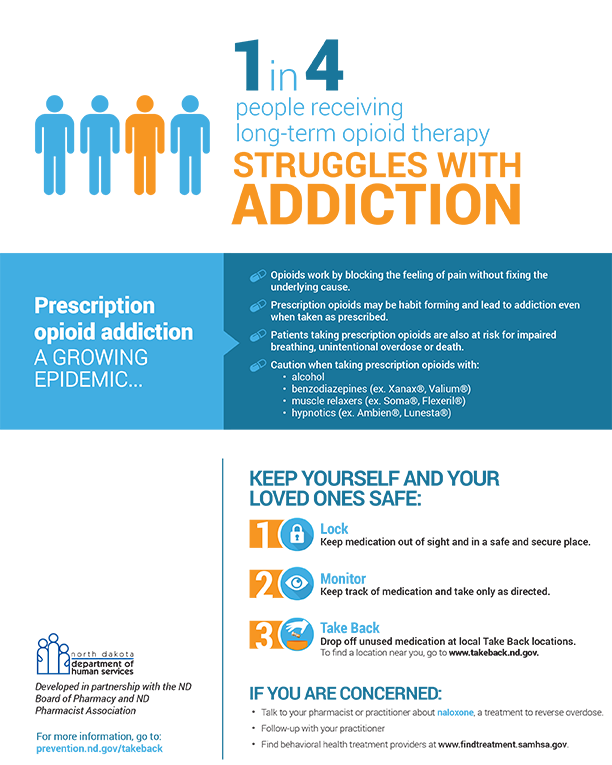The opioid misuse crisis has swept across the U.S. and our communities in the past decade. As many as one in four patients receiving long-term opioid therapy in a primary care setting struggles with opioid addiction. 1,2,3
It is important that opioid misuse prevention be moved upstream, to the initial patient encounter. In response to this challenge, faculty members at the NDSU School of Pharmacy and other partners introduced the ONE Program, a three-hour continuing education seminar and patient care process.
The purpose is to equip pharmacists with tools to screen for opioid use disorder to identify patient needs and provide counseling and support to assist them in safely using prescribed opioids.
Results show that with the ONE Program, 78.3% of patients identified as at-risk of opioid misuse or accidental overdose, were successfully delivered critical preventative interventions by their pharmacist. Click here for more results.
